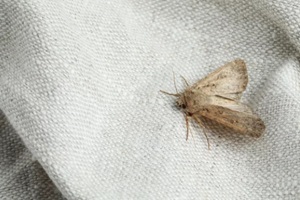 As spring emerges in Massachusetts, most families are eager to get out of the house and back into the fresh air and sunshine. However, humans aren’t the only ones ready to emerge after a long winter — many pests and common bugs in Massachusetts have been waiting patiently for the days to get longer and warmer so they can begin their spring and summer lifecycles.
As spring emerges in Massachusetts, most families are eager to get out of the house and back into the fresh air and sunshine. However, humans aren’t the only ones ready to emerge after a long winter — many pests and common bugs in Massachusetts have been waiting patiently for the days to get longer and warmer so they can begin their spring and summer lifecycles.
Among these, few are as problematic for humans and their pets as ticks. Ticks are not only a nuisance because they bite and hold on, sometimes for days, but also because they can carry very severe diseases.
Discover essential strategies for safeguarding your loved ones, including furry friends, from tick-borne illnesses prevalent in Massachusetts, empowering you with actionable tips and insights to mitigate risks and ensure the well-being of your family and pets.
What Illnesses Do Ticks Carry?
The biggest threat from being bitten by a tick is becoming infected with any of the various diseases they can carry. Most people are aware of Lyme disease, but fewer know that ticks can also infect humans with babesiosis, alpha-gal syndrome, and anaplasmosis.
While anaplasmosis and babesiosis are associated with fever, headaches, muscle and joint pain, and a general feeling of malaise, both can progress to severe or even life-threatening conditions that result in organ failure, anemia, jaundice, and more.
Alpha-gal is another potential issue and is most notorious for suddenly causing people to have a significant or even fatal allergic reaction to meat where no issue existed before. In many cases, alpha-gal persists for the rest of a person’s life.
The most notorious tick-borne illness, Lyme disease, can also become chronic if not properly treated. Not all tick bites will display the characteristic bulls-eye mark around the injury, so always be sure to carefully screen yourself, your family, and your pets for ticks rather than waiting for the mark or redness to appear.
Strategies to Keep Ticks Away in MA
Ticks are a normal part of Massachusetts’ spring and summer environment, but this does not mean they must be a nuisance in your yard. Some options for protecting your family and pets from ticks include:
- Discouraging host animals (such as mice) and other pests from entering the yard using pest control strategies
- Planting foliage that naturally repels ticks (e.g., sage, foxglove, yarrow, boxwood, and wisteria)
- Keeping grass short to eliminate safe hiding places for ticks
- Pruning overhanging plants and bushes to remove shaded, moist areas
- Creating inhospitable transition areas, such as next to the home, so that ticks are disincentivized from making their way inside
- Removing safe havens, such as wood piles and leaf debris
- Checking family and pets for ticks whenever they come back inside, as ticks need multiple hours to infect a host
- Using pesticides tailored to your yard to reduce the tick population (tick pesticides are called acaricides)
Even after all this effort, it is still possible that a persistent tick could find its way into the areas where your family works and plays. The most comprehensive protection comes from taking proper care of your property and partnering with a professional pest control company to identify the risk factors unique to your landscape.
What to Do if You Find a Tick Bite
If you, a family member, or a pet has been bitten by a tick, what you do next can make all the difference. It is wisest to seek immediate medical attention, either with your primary care doctor or an urgent care, to have the tick removed.
 Do not wait; try to be seen within the next few hours after the bite has been discovered before the tick can infect the host. A doctor can not only look for symptoms of illness but can also remove the tick correctly.
Do not wait; try to be seen within the next few hours after the bite has been discovered before the tick can infect the host. A doctor can not only look for symptoms of illness but can also remove the tick correctly.
Done improperly, tick removal can leave the biting head of the tick behind, where it will continue to bite and potentially infect the host even if its body is removed. Never try to burn or squeeze the tick to remove it, both of which can cause a greater injection of bacteria into the body.
Work With Pest Control Pros to Keep Ticks at Bay
Ticks are a regular part of the springtime environment in Massachusetts, but homeowners do not need to simply accept them as a biting nuisance each year.
The experts at Spartan Animal & Pest Control can help you identify risk factors that increase your chance of tick problems on your property and eliminate them so you, your family, and your pets can enjoy your outdoor time.
Contact Spartan Animal & Pest Control to schedule a tick prevention appointment.



